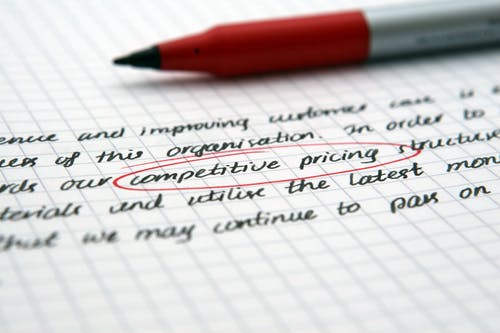 Hello peeps,
Hello peeps,
How have you been? And how’s life treating you?
You know we can’t let this week close without bringing you awesome opportunities as usual.
So, we have been working.
And for the results, we have lots of amazing opportunities for you this week.
Feel free to browse through and apply for ones that suit you.
Table of Contents
Queen Elizabeth Commonwealth Scholarships 2019- Second Cycle
Queen Elizabeth Commonwealth Scholarships give talented students from anywhere in the Commonwealth the opportunity to gain a Master’s degree while developing new skills, experiencing life in another country, and building their global networks.
Scholarships are for students committed to creating change in their communities and contributing to the Sustainable Development Goals (SDGs). The scholarships are named in honour of Her Majesty The Queen, Head of the Commonwealth and ACU Patron, and are fully funded and supported by numerous Commonwealth governments.
Benefits
The scholarships are fully-funded
Providing full tuition fees
A return economy flight
An arrival allowance
A regular stipend (living allowance).
Eligibilities
They are for Master’s courses only and are not applicable to distance learning courses.
Applicants must be a citizen of a Commonwealth country, other than the host country.
Applicants must hold a Bachelors degree of at least upper secondary level.
Eligible Regions: Commonwealth Countries (Other than the host country).
APPLICATION PROCESS
Download the application form, and complete it in as much detail as possible.
As well as the application form, applicants must submit the following:
High school certificates
Undergraduate transcripts and graduation certificate
At least one academic reference
Scan of passport or national ID card
Proof of English language ability if English is not your first language
University offer letter for the course you have applied for if you already have one
Application Deadline: February 6, 2019
APPLY HERE VIA THEIR OFFICIAL WEBSITE
Call for Entries: IMF F&D Essay Competition 2019

F&D Essay Competition is an essay writing competition organized by the International Monetary Fund.
The winning essay will be published in a forthcoming edition of F&D magazine in six languages both in print and online—reaching a large audience.
Finance & Development, the IMF’s quarterly print magazine and online editorial platform, publishes cutting-edge analysis and insight on the latest trends and research in international finance, economics, and development.
The print edition is published quarterly in English, Arabic, Chinese, French, Russian, and Spanish, while the web edition is complemented with additional, online-only content.
Finance & Development is written by both IMF staff and prominent international experts and is read by leading policymakers, academics, economic practitioners, and other decision-makers around the world.
The International Monetary Fund (IMF) is an organization of 189 countries, working to foster global monetary cooperation, secure financial stability, facilitate international trade, promote high employment and sustainable economic growth, and reduce poverty around the world.
Created in 1945, the IMF is governed by and accountable to the 189 countries that make up its near-global membership.
The IMF’s primary purpose is to ensure the stability of the international monetary system—the system of exchange rates and international payments that enables countries (and their citizens) to transact with each other and make resources available (with adequate safeguards) to members experiencing balance-of-payments difficulties.
The Fund’s mandate was updated in 2012 to include all macroeconomic and financial sector issues that bear on global stability.
The IMF’s fundamental mission is to ensure the stability of the international monetary system. It does so in three ways: keeping track of the global economy and the economies of member countries; lending to countries with balance of payments difficulties; and giving practical help to members.
The IMF, also known as the Fund, was conceived at a UN conference in Bretton Woods, New Hampshire, United States, in July 1944.
The 44 countries at that conference sought to build a framework for economic cooperation to avoid a repetition of the competitive devaluations that had contributed to the Great Depression of the 1930s. The IMF has played a part in shaping the global economy since the end of World War II. IMF has approximately 2,700 staffs from 150 countries.
Location: Online
Benefits
The winning essay will be published in a forthcoming edition of F&D magazine in six languages both in print and online
The winning essay will reach leading policymakers, central bankers, academics, economic practitioners, development experts, journalists and other decision-makers around the world through the F&D magazine.
Eligibilities
This competition is open to all graduate students worldwide
Those who have graduated from a master’s degree program or higher in 2018.
Eligible Regions: Open for All
APPLICATION PROCESS
Applicants must submit an English of 1500 words or less, on the following topic “Research has shown that excessive inequality harms economic growth and damages the social fabric by undermining trust and preventing people from reaching full potential. How can inequality be tackled in the 21st century?”
Applicants must submit their full name, graduate program, university affiliation, email address and essay to fanddcompetition@imf.org
Application Deadline: January 31, 2019
Royal Society Africa Prize 2019 for Research Scientists
Apply or Nominate for the Royal Society Africa Prize 2019 for Research Scientists!
The Royal Society has a broad range of medals including the Premier Awards, subject-specific awards and medals celebrating the communication and promotion of science. All of these work to recognize and celebrate excellence in science.
The Royal Society Africa Prize is to recognize research scientists based in Africa who are making an innovative contribution to the biological sciences, including basic medical science, which contributes significantly to capacity building in Africa.
The Society’s fundamental purpose, reflected in its founding Charters of the 1660s, is to recognize, promote, and support excellence in science and to encourage the development and use of science for the benefit of humanity.
The Society has played a part in some of the most fundamental, significant, and life-changing discoveries in scientific history and Royal Society scientists continue to make outstanding contributions to science in many research areas.
Their priorities include:
Promoting excellence in science
Supporting international collaboration
Demonstrating the importance of science to everyone.
Location: Online
Benefits
The winner will receive a bronze medal, accompanied by an £11,000 grant towards their research project and a gift of £1,000.
Eligibilities
The Royal Society Africa Prize (hereafter referred to as the Prize) will be made to an individual (hereafter referred to the Recipient) for an outstanding, innovative contribution to biological science, including basic medical science, which contributes significantly to capacity building in Africa.
The Prize is intended for researchers at an early stage of their research career (usually having received their PhD within the last 10-15 years) with the potential to build a research project to follow on from the prize.
The Prize will make a grant of £11,000, including VAT where applicable, to the Recipient for a research project and £1,000 as a personal prize for the Recipient.
The Recipients must notify the Royal Society of any change in their status or location.
The Recipients will also be awarded a specially struck commemorative medal and they are expected to receive the Prize in person at a ceremony at the Royal Society, except in exceptional circumstances such as ill-health.
Nominations can be made by senior academics and members of the national academies of science.
The project and nominee should be linked with an African centre of excellence, which would normally be a University or equivalent research centre.
Normally the Prize is given to an individual who has not yet reached full Professorship status.
Nominators are required to submit two referees for the nominee. These will be requested once nominations have closed and are shared with the relevant selection committee.
Referees should be as independent as possible – i.e. not from the same department, nor have published/ collaborated together with the nominee in the last 5 years. The referees should also not be a member of the relevant selection committee nor the Council of the Royal Society.
Eligible Regions: Africa
Application Deadline: January 28, 2019 (10 Days Remaining)
OR









